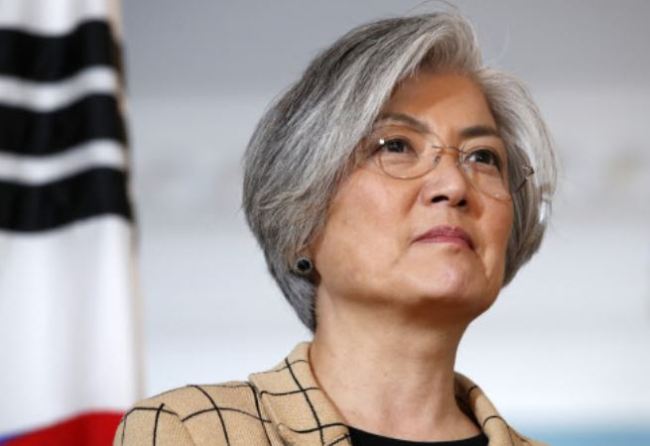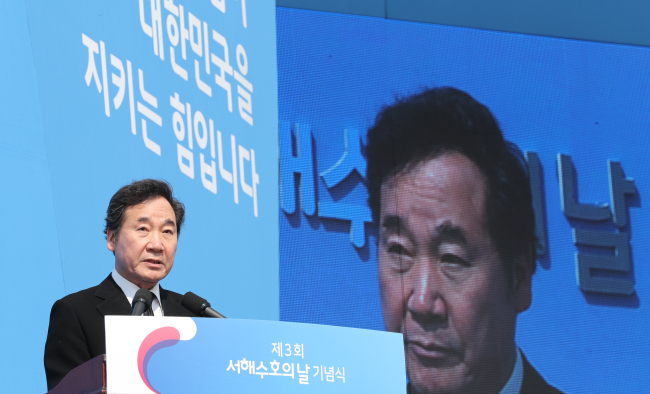Trump’s defense of “getting along” with Putin shows again how clueless he is
In two tweets, both posted on Wednesday afternoon, President Donald Trump revealed, as clearly as ever, just how utterly clueless he is about the most basic aspects of foreign policy.
They came in a moment of anger over media criticism that Trump, against the advice of his staff, had congratulated Russian President Vladimir Putin on his election victory. Trump’s response:
AdvertisementGetting along with Russia (and others) is a good thing, not a bad thing…
…They can help solve problems with North Korea, Syria, Ukraine, ISIS, Iran and even the coming Arms Race. Bush tried to get along, but didn’t have the “smarts.” Obama and Clinton tried, but didn’t have the energy or chemistry (remember RESET). PEACE THROUGH STRENGTH!
Each of these five sentences contains a distinct misunderstanding of how international politics works—and sends a signal, to friends and foes alike, that whenever Trump enters negotiations with foreign leaders, he steps into waters way over his head.
So let’s parse them, one by one.
“Getting along with Russia (and others) is a good thing, not a bad thing.” Yes, all things equal, getting along is better than not getting along, but all things are not equal, and, in any case, “getting along” is not the goal of any foreign policy. Getting along might smooth the rough spots in a relationship between two countries, but the nature of the relationship is set by whether their interestsconverge or collide.
Trump is the Willy Loman of foreign policy.Franklin D. Roosevelt and Winston Churchill got along splendidly during World War II, but their friendship would have been worthless if they didn’t share a vital interest in defeating Nazi Germany—and, even so, their generals disagreed in major ways over how best to wage the war. Trump has tried to get along with Chinese President Xi Jinping, and Xi has pushed all of Trump’s buttons to encourage his misconception of how the world spins. But a slice of “beautiful chocolate cake” at Mar-a-Lago did little to push Xi toward pressuring North Korean leader Kim Jong-un to dismantle his nuclear arsenal—and if Xi ever did decide to take a decisively harder line, it would stem from a recalculation of Chinese interests, not from some desire to do Trump a favor.
Advertisement Advertisement Advertisement AdvertisementIn general, good relations stem from shared interests, not the other way around.
“They can help solve problems with North Korea, Syria, Ukraine, ISIS, Iran and even the coming Arms Race.” True, if any of these problems can be solved, Russia will have to play a part in the solution, and this is why maintaining diplomatic relations is important. But there are a few problems with this notion.
First, when it comes to Syria, Ukraine, and “the coming Arms Race” (if there is one), Russia isthe problem—or at least a fair part of it. Good relations alone won’t solve these problems; diplomacy has to be aligned with pressure.
Second, even in good relations, leaders have to confront each other candidly. Washington and Moscow have long cooperated in areas where cooperation might lead somewhere while still acknowledging—and sometimes clashing over—their differences. When Trump called Putin to congratulate him for winning his rigged re-election, and said nothing about Putin’s meddling in American elections or assassinating Russian exiles on British soil, he was giving Putin tacit permission to keep subverting our democracy and violating our allies’ sovereignty. Trump was, among other things, tagging himself as an easy mark.
Advertisement AdvertisementThird, there is clear hypocrisy here. One could make an equally valid case that Iran could help solve problems with Syria and ISIS, that ISIS could help solve problems with Syria, and that Syria could help solve problems with ISIS. Yet Trump isn’t cuddling up to them. Hypocrisy by itself isn’t necessarily a problem; all nations engage in it, to some degree. But this sentence is soaked in it so thoroughly that anyone who reads it can figure it’s not meant to be taken seriously.
“Bush tried to get along, but didn’t have the ‘smarts.’ ” Regardless of his “smarts,” George W. Bush didn’t have as many problems with Russia, because Russia was still reeling from its Cold War defeat: Its economy was tanking, its military was crumbling, Putin—the former KGB officer who would later describe the collapse of the Soviet empire as “the greatest geopolitical catastrophe of the century”—was in a state of deep resentment, poised for revenge when he could take it.
Advertisement AdvertisementWhether or not Bush thought he had good relations with Russia, Putin viewed America as a trampling aggressor, starting with Bill Clinton’s policy of “enlarging” NATO right up to Russia’s borders. It’s debatable whether a more sensitive U.S. policy might have drawn Russia into European civilization. The point here is that, whatever caused the renewed rupture in East-West relations, “getting along” and “smarts” had nothing to do with it.
Advertisement Advertisement“Obama and Clinton tried, but didn’t have the energy or chemistry (remember RESET).” Here Trump is referring to Hillary Clinton, who, as Obama’s secretary of state, coined their stab at improving U.S.-Russian relations as a “reset.” But Trump is off the mark in at least two ways.
AdvertisementFirst, while Dmitry Medvedev was Russia’s president, from 2008 to 2012, the reset accomplished quite a bit. He and Obama signed the New START nuclear arms treaty, which both countries still honor. Medvedev canceled the sale of advanced air-defense missiles to Iran, even refunding the cash, which Tehran had paid upfront. (Without those missiles, U.S. or Israeli jets could easily have attacked Iran’s nuclear reactors, a fact that may have driven Tehran to negotiate the nuclear deal.) The reset screeched to a halt, then went into reverse, after Putin regained control of the Kremlin—and this happened not because Medvedev got along better with the Americans, or because Putin got along worse, but rather because the two Russian leaders had different concepts of their country’s interests.
AdvertisementSecond, and more to the point, the idea that Obama and Clinton failed (to the degree they failed) because they lacked “energy or chemistry” is absurd on two levels. On the matter of “energy,” whatever one thinks of Obama’s time in office, no one could fault him for fatigue or laziness; he worked as hard as anyone, and in his eight years as president, he made 52 foreign trips to 58 countries. Clinton visited 112 countries, more than any secretary of state in history.
Advertisement AdvertisementAs for “chemistry,” Trump comes full circle to his assumption that international relations and personal relations are one and the same—that negotiations and policies succeed or fail because the two leaders do or do not click. This is Trump’s biggest fallacy. And it could get him—and all of us—into serious trouble. Does he believe his forthcoming talks with Kim Jong-un will succeed if they get along—if Trump’s charms throw him into a spell or, conversely, if Trump’s brazen power makes him quake in the knees? If so, he should figure out some excuse to cancel the trip.
AdvertisementFinally, “PEACE THROUGH STRENGTH!” This is a Republican bromide, but in this context, it’s even more vague than usual. Where is the “strength” in Trump’s nice-talk with Putin? And strength spawns peace only if the strong leader knows what kind of peace he or she wants and how to use force as a diplomatic lever to get there. Trump shows no signs of knowing how to do this. Like many sentences that he tweets in all caps with an exclamation point, it’s a bit of empty theater, nothing more.
Trump is the Willy Loman of foreign policy. He thinks, as does the tragic traveling salesman of Arthur Miller’s play, that “personality always wins the day” and “a smile and a shoeshine” are more important than having something to sell that customers want. And unlike Willy, who at least used to be the No. 1 man in his neck of the woods, Trump has never known the territory of global politics—and he doesn’t know that he needs to learn its contours. He doesn’t even know what he’s selling. He doesn’t know the values or interests of his own nation.
Tweet Share Share Comment相关文章

iPhone 16 Pro new color will reportedly be Desert Titanium
Apple's upcoming iPhone 16 Pro will come in a new color, a new report claims, and it will be sort-of2024-09-22
NK leader gave 'his word' on denuclearization: Kang
WASHINGTON -- South Korean Foreign Minister Kang Kyung-wha expressed confidence in North Korea's com2024-09-22
Prime minister vows strong defense against N. Korea despite conciliatory mood
Prime Minister Lee Nak-yon said Friday that South Korea won't let its guard down and will ensure its2024-09-22
'Peaky Blinders,' 'Project Runway' and more drop Weinstein credits
The career repercussions for Harvey Weinstein have started to come in the wake of dozens of women co2024-09-22
The Wonderful World of Christmas Trees
There’s no denying the joy that a Christmas tree can bring. As soon as the turkey goes cold an2024-09-22 今年,荔枝成花坐果期遇到异常的气候普遍减产,为做好农业技术服务下一个荔枝季生产,近日,华南农业大学植物保护学院黄继光特派员团队一行前往广州市从化益又多蔬果种植专业合作社,开展荔枝栽培管理技术指导。经前2024-09-22
今年,荔枝成花坐果期遇到异常的气候普遍减产,为做好农业技术服务下一个荔枝季生产,近日,华南农业大学植物保护学院黄继光特派员团队一行前往广州市从化益又多蔬果种植专业合作社,开展荔枝栽培管理技术指导。经前2024-09-22

最新评论